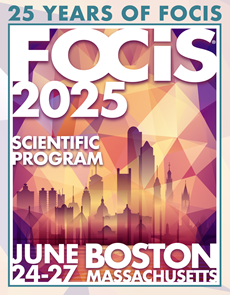Autoimmune Diseases
Session: Late-Breaking Abstracts
Targeting IRF5: Discovery and Preclinical Development of Selective Small Molecule Inhibitors
Wednesday, June 25, 2025
4:00pm - 4:15pm East Coast USA Time
Location: Salons H-K
Guohua Zhao – HotSpot Therapeutics; Mark Weir – HotSpot Therapeutics; Huadong Sun – HotSpot Therapeutics; Kathleen Smith – HotSpot Therapeutics; Christophe Lamarque – HotSpot Therapeutics; Eric Chan – HotSpot Therapeutics; Brian Hamman – HotSpot Therapeutics; Emma Wright – HotSpot Therapeutics; Geraldine Harriman – HotSpot Therapeutics; Joseph Wahle – HotSpot Therapeutics
- NL
Nuruddeen Lewis, PhD
HotSpot Therapeutics
Andover, Massachusetts, United States
Presenting Author(s)
Abstract Text: Interferon regulatory factor 5 (IRF5) is a transcription factor that regulates inflammatory cytokine and type I interferon production downstream of Toll-like receptors (TLRs) 7, 8, and 9. Genetic polymorphisms in IRF5 are associated with increased risk for systemic lupus erythematosus (SLE), Sjögren’s syndrome, and other autoimmune diseases, underscoring its potential as a therapeutic target. IRF5-deficient mice exhibited strong disease protection in several models of SLE, with reductions observed in type I interferon levels and anti-nuclear autoantibodies. Importantly, heterozygous IRF5 mice also showed substantial protection from disease development, suggesting that target modulation, but not complete inhibition, may be sufficient for therapeutic benefit. Despite the challenges of targeting a transcription factor lacking a conventional active site, we have successfully discovered potent and selective small molecule IRF5 inhibitors. These novel compounds effectively blocked IRF5 phosphorylation, nuclear translocation, and subsequent cytokine production in human monocytes following TLR7/8 stimulation with >100-fold selectivity over IRF3, IRF7, and the adjacent TLR2 pathway. In vivo, oral delivery of the IRF5 inhibitor downregulated type I interferon signature genes in a short-term pristane-induced lupus model and significantly reduced joint inflammation and autoantibody production in both methylated bovine serum albumin (mBSA) and collagen-induced arthritis (CIA) models. These compelling preclinical data support IRF5 inhibition as a promising therapeutic strategy for autoimmune diseases and the continued advancement of our IRF5 inhibitor program.

